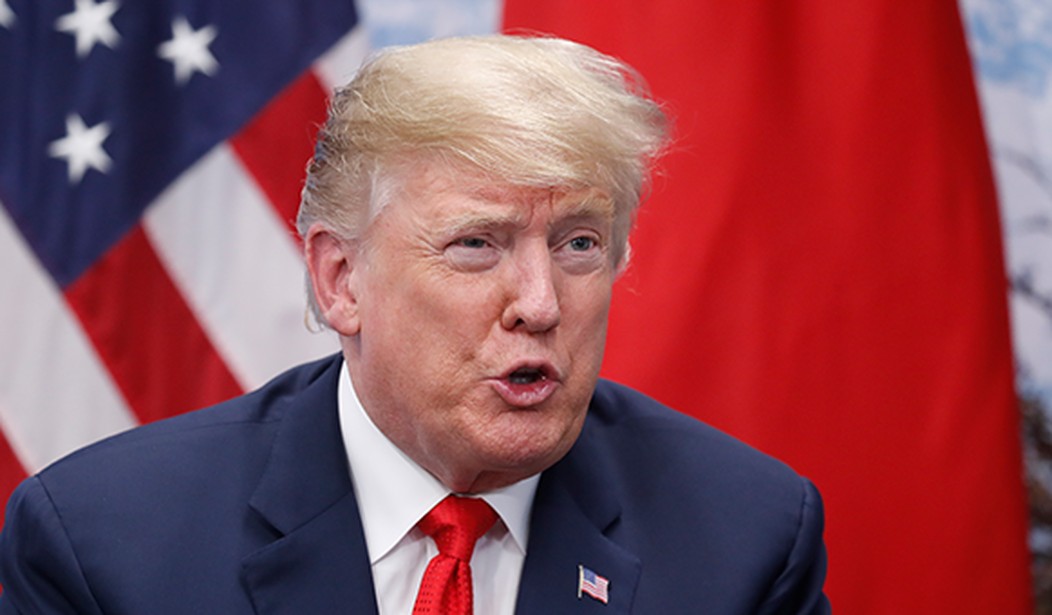Donald Trump probably can't win the 2020 presidential election, but the Democrats can lose it.
What I mean is that in a contest between Trump and a generic Democrat, Trump would almost surely lose if the current political climate holds through 2020. According to a Fox News poll this week, 38 percent of respondents said they would "definitely" or "probably" vote for Trump, while 55 percent said they would "definitely" or "probably" vote for someone else.
Trump's boosters are often quick to dismiss the polls, claiming they were wrong in 2016, when everyone said he had no chance of winning. The problem with this defense is that the national polls were actually pretty accurate in 2016. If you average out the 13 final national polls of 2016, they showed Hillary Clinton ahead by 3.1 percentage points. She won the popular vote -- the only thing national polls measure -- by 2.1 percentage points.
Trump carried the Electoral College because he won Pennsylvania and Wisconsin by 0.7 points each and Michigan by 0.2 points. A mere 78,000 votes carried the day.
Most presidents work assiduously to build on the coalition that brought them to power. President Trump has done almost the opposite, catering to his base while doing almost everything he can to alienate suburban Republicans and independents, which is why the GOP got shellacked in the midterms.
So if Trump runs -- which is probably a bigger "if" than many people think -- the cards are stacked against him. Fortunately for him, the Democrats will not nominate someone named Generic Democrat.
Instead, the Democrats are poised to re-create the same dynamic that got Trump the GOP nomination in the first place. While it's technically true that Trump beat 16 opponents, as he likes to say, the truth is a bit more complicated. Trump never won a majority of votes in the primaries. He benefitted from a collective action problem in which various candidates defeated each other while a sticky plurality of voters stuck with Trump.
Recommended
If the field had been narrower, with only two or three contenders other than Trump, his base of support might not have been enough. But with each additional player, the number of votes he needed to win shrank.
Right now, it's almost easier to list the number of prominent Democrats who aren't thinking of running. No one knows for sure, but estimates on the number of potential Democratic candidates range from 20 to 40. In that kind of field, the ability to attract a small but passionate cadre of supporters will be more important than arguments about electability. Thus, there will be an enormous incentive to replicate the Trump model of taking unorthodox positions, stated as boldly as possible, in order to win over the most passionate ideologues and activists.
Moreover, the mood among Democrats is more than a little analogous to the mood among Republicans in 2016. Hillary Clinton was a uniquely disliked and feared figure among conservatives. The argument that America would be "over" if she won found purchase among millions of Republican voters. One need only listen to a few minutes of discussion on CNN or MSNBC, or to read the op-ed pages on almost any given day, to see that a similar attitude is widespread among Democrats. If you can't imagine chants of "Lock him up!" at the Democratic convention in 2020, you haven't been paying attention.
Thus, the odds that the Democrats will elect their own Trump are very high. Of course, the one thing Trump fans and foes alike can agree on is that Trump is a unique political personality. But a Democratic candidate could substitute policy outlandishness for personal outlandishness quite easily. Many in the Democratic base could easily rally to someone promising to abolish ICE, deliver "Medicare for All," repeal the Second Amendment ... whatever. That would give Trump the ability to convince many otherwise hostile voters to cast ballots against the Democrats rather than for the incumbent.
He can't win, but they can still lose.

























Join the conversation as a VIP Member